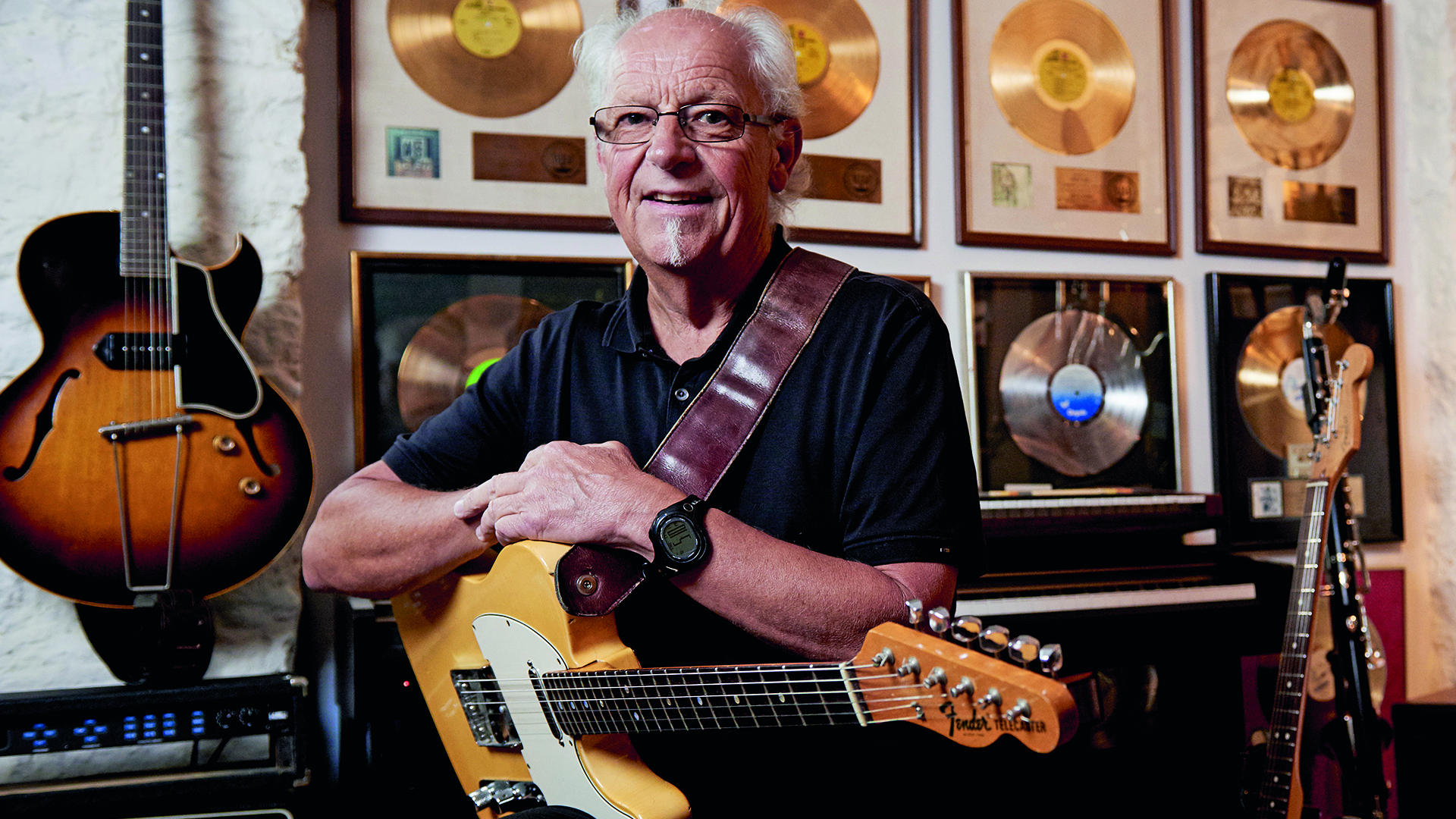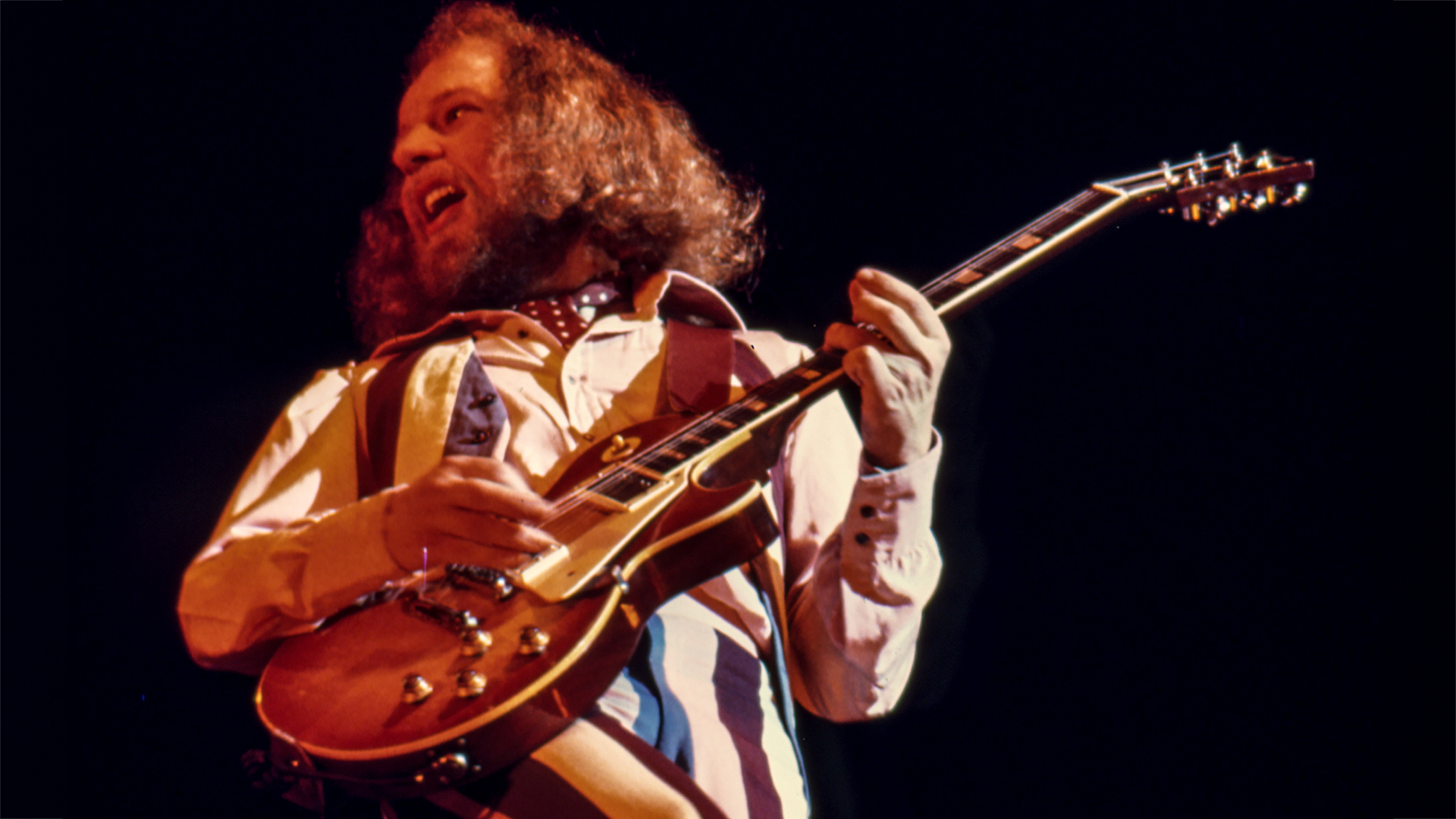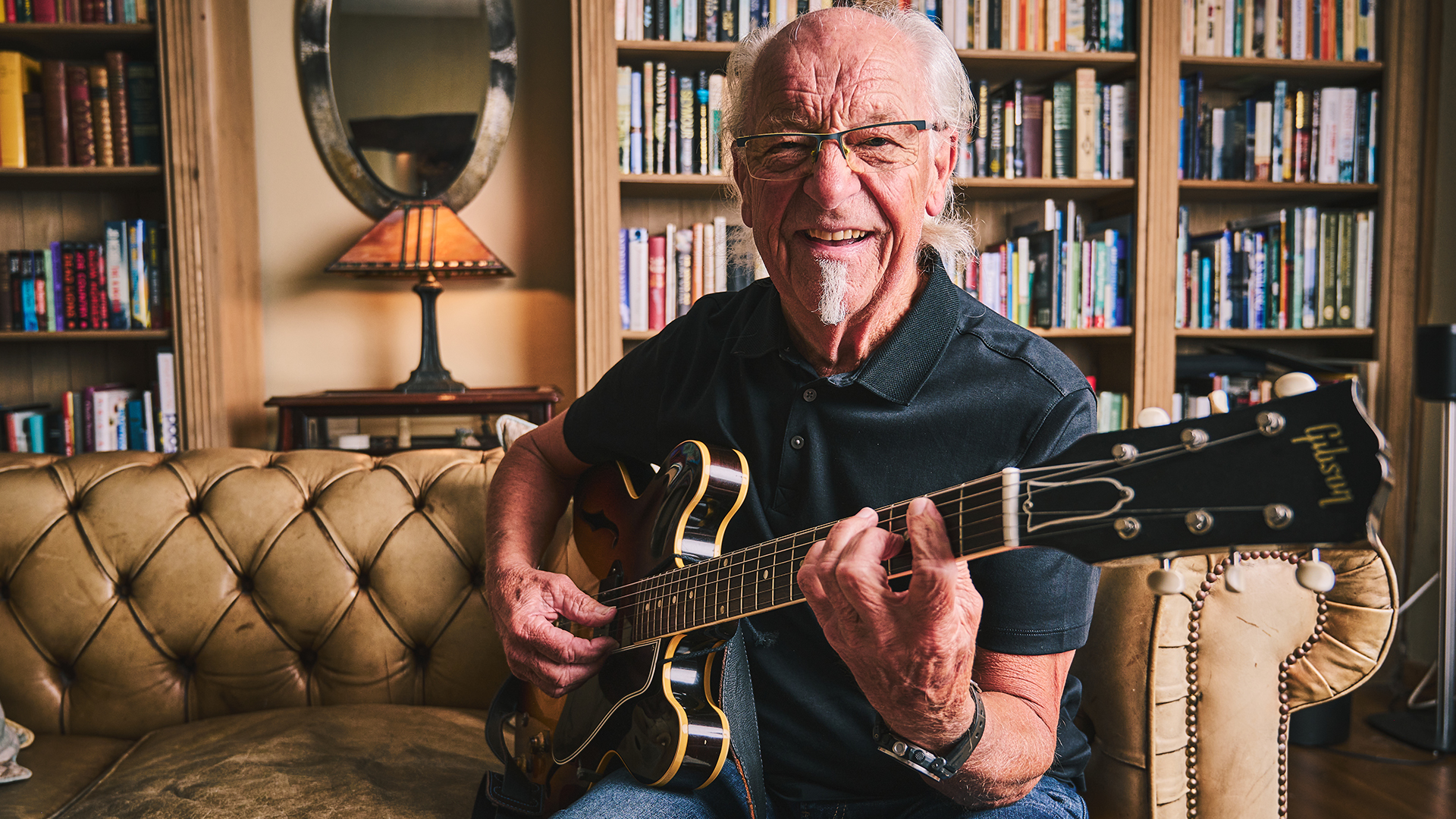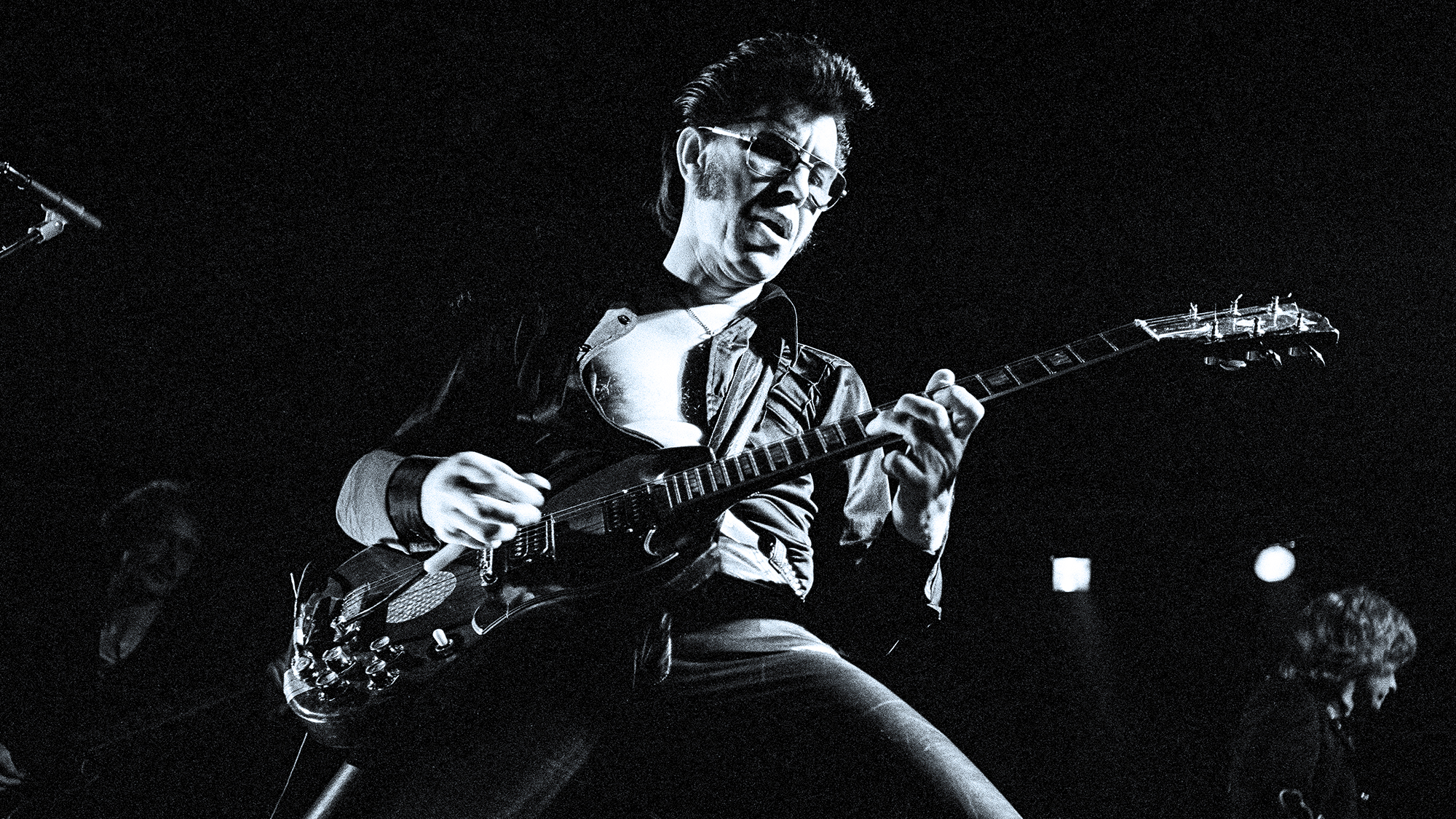“This guy had a vintage Black Beauty Les Paul, a mint early ‘50s Telecaster, and a blonde, refinished Les Paul. He pleaded with me to buy one of the other two.” Martin Barre tells how a bogus guitar became his main axe in Jethro Tull’s early days
The guitarist also tells us how he stays excited about playing more than 60 years down the road

At the age of 78, Martin Barre has been on the road for more than 60 years. He shows no sign of slowing down, as seen by his two-hour long show, A Brief History of Jethro Tull, a celebration of the group’s lesser-known tracks, which he toured around the globe from 2023 to 2024.
Barre made his recording debut with Jethro Tull on Stand Up, way back in 1969. As he recalls, there were some difficult times for the band, as their fanbase struggled to accept not only their new guitarist but also their change in musical direction, as blues guitarist Mick Abrahams departed and the band took a more prog-inspired approach.
“I didn’t get a great reception,” Barre says. “Audiences were big fans of Mick Abrahams and went to see Tull specifically to watch Mick and see what was, essentially, a blues band during his tenure.
“When I saw Tull at the Marquee in London and at the Kempton Blues Festival, Mick was very much the main attraction. The focus of the show was the blues and Mick’s playing. That all finished when I joined.” He laughs. “People said, ‘Why have they got this guy? It’s not Jethro Tull anymore.’ It was a tricky transition for us.”
Indeed, Barre today cites a very different style of music when asked to name some of his favorite tunes. Fans may be surprised to hear him rave about American soul singers Lorraine Ellison’s “Stay With Me” and Marvin Gaye’s “I Heard It Through the Grapevine.”
“I think those songs possibly mean much more to me than the things that I played on,” he admits. tI was in a support band for The Drifters, and Tamla Records and R&B really informed what I am musically. We were playing all night in clubs in the late ‘60s — it was a really killer schedule — and they used to play ‘Stay With Me‘ at the end of the night when people were leaving. It’s really stuck with me ever since then. It takes me back to those days.
"I love all Tamla and soul,” he continues. “That’s my favorite music. Great songs, and so uplifting. I used to play sax and I remember playing all those big Stax Records riffs in those days, but I think my absolute favorite thing of all was female vocal harmonies like The Ronettes.”
All the latest guitar news, interviews, lessons, reviews, deals and more, direct to your inbox!
Gear-wise, Barre has always kept things fairly simple. “These days it’s pretty much a Soldano and PRS combination,” he explains. “It’s funny to think back to the early days of Tull, where I just had the one electric guitar, as did many people back then. It never really seemed like you could have a whole collection of guitars.”

However, when he did purchase what became his main axe during Tull’s early days, Barre had the misfortune of getting duped.
“In those early days a lot of guys would come around selling vintage guitars to bands,” he explains. “This guy had a vintage ‘Black Beauty’ Les Paul with three pickups, an absolutely mint, unplayed early ‘50s Telecaster that was so perfect that it still had the original case with it, and a blonde, refinished Les Paul.”
Faced with such temptations, what did Barre choose? The news will make guitarists shudder.
"I, of course, chose the refinished Les Paul, which turned out to not even be a genuine Gibson, years later. Even the guy who was selling them pleaded with me to buy one of the other two guitars.”
He laughs at the memory. “I used that so-called Les Paul for a long time in those early years.”
Barre had had no problems keeping things fresh during A Brief History of Jethro Tull, even though he’s been playing some of the Tull songs for many decades. “I think the way that I’ve revisited lesser known songs from the Tull canon is an important element in that,” he offers. “I’ve been able to give Tull’s music a huge amount of exposure since I’ve had my own band, but I think that means that my next project will be mostly my music.
"I know that people mostly come to see me because I was in Tull, but I think there is a willingness in those fans to listen to what I do. I think it might be time to play my music, even if, perhaps, the audience for it might be smaller.”
Below, Barre tells the tales behind five songs from his lengthy career, including four of Jethro Tull's less-celebrated works.

Barre’s next album will be a live record documenting the tour, but following that he plans to record an album of original material.
The live experience is the most important thing to Barre, and he has relished his lengthy global expedition. “I’ve always liked traveling and being in different places,” he says. “It really drives me and keeps me going. Every show for me feels like the first show that I’ve ever played. I could never play the same show over and over again.”
“Barre’s enthusiasm for playing the guitar hasn’t diminished either, even this far down the line. “I’ve been playing guitar for over 60 years and it still keeps my brain alive and my blood flowing. I still love the guitar, and music, and it never pales for me. I’ll put the kettle on at 7.30 a.m. then go and play, and it’s often also the last thing that I’ll do at night. I find something new every day, whether it be a way of turning a familiar riff inside out or finding a new chord or a fingering for a chord that opens up unexpected possibilities.
“I still practice scales, fingerpicking, the mandolin or I’ll stick on Snarky Puppy and play along to it. The guitar is a bit like chess — there’s billions of moves. I never cease to be amazed by the infinite possibilities of such a simple instrument.”
“SOSSITY YOU’RE A WOMAN” (1970)
“This is a big track for the road tour fo Tull's lesser-known tracks. I’ve was determined to pull out things from my back catalog that I really enjoyed playing and 'Sossity' was very near the top of my list. I’ve always had a soft spot for it. It was the first track that Ian and I played acoustics together on. It was very much a shared track with equal input from me and Ian on how we got the guitar parts to interweave.
"I feel that a lot of me went into the making of this track. It was all new territory for both of us at that time. We weren’t set in our ways — we just sat down and worked everything out between us. We had quite diverse musical backgrounds so the ideas came from two very different angles. I actually had a boat in the early '70s that I called Sossity, so that shows how fond I was of the song.”
“NOTHING TO SAY” (1970)
“I’ve picked a couple of tracks from Benefit, as it was such a great album to make. When I joined Ian and the guys, there was a lot of resistance and it took many shows to break that down. We finally managed to get the new direction accepted, as we were touring in support of Stand Up, which was very different from the first Tull album. When that finally broke through and we started to get success with the band, both in the U.K. and U.S.A, it took a lot of pressure off us, which meant that the making of Benefit felt very laid back.
"We were in a really good place when we recorded Benefit, which is why it has such positive memories for me. My playing was very different when it came to solos on the early Tull records. I never structured solos in the early days; I used to just go for it. Often there were only two or three takes available for getting it right, which meant that you had to really be on top of what you wanted to say, musically. Sometimes you’d listen back and think maybe a note here or there could have been improved, but it didn’t matter as it was about capturing the moment and the feeling.”
“BEASTIE” (1982)
“I think there are parts of 'Beastie' that are right on the edge of sounding wrong, and that’s something that is interesting and exciting when you’re making music. I think the thing that I love about this track most is that this is my favorite solo of any that I played in Tull. I remember we recorded it for the album The Broadsword and the Beast at Maison Rouge, and we had a big producer foisted on us by the record company, and we thought that the last thing we needed was an outsider trying to produce the band . We effectively produced the album ourselves, really.
"It was a miserable experience, using this so-called top bullshit London studio, where the sound was just absorbed like a sponge. It seemed to lose all of the essence of musicality. It had a bad effect on me, and I started to feel that I was losing all of my confidence in what I was playing. I could barely put any good guitar parts together, but in the middle of the sessions, I remember sitting in an office upstairs, spending hours figuring out how to make the notes pinpoint the chord changes for this song. I’m rarely pleased with what I do, but I am really pleased by the construction of this solo, where something really good emerged from a very stressful period.”
“PAPARAZZI” (1984)
“I’m picking this because it’s one of the few songs that Tull recorded that I wrote. Ian did the lyrics, but the music is mine. I was unsure of it when I presented it to Ian. I’d come up with the riff at home, months before. Even though we were all in the same band in Tull, our influences were extremely diverse. I was obviously into anything with exciting, interesting guitar playing, and that could have been anything from punk to who-knows-what, as long as the music moved me. I was listening to a lot of hard-edged stuff at the time I wrote this. I thought the band wouldn’t like it but, amazingly, they all thought that it was really cool.
"I guess this sounds like a very different Tull from the early '70s, and I think that was down to the fact that this was my song. That was a way that everything stayed fresh in Tull, that we’d be open to bringing new things in and never planning an album with any expectations.”
“MOVERS AND SHAKERS” (1997)
“I recorded this with [British folk rocker] Vikki Clayton for her [1997] Movers and Shakers album. Vikki is a lovely lady and she has such an amazing, beautiful voice. I love the tonality of female voices — perhaps that’s after 45 years of listening to Ian’s rasping Scottish accent — maybe it’s the contrast. [laughs]
"The house I was living in at the time this was recorded had a studio attached to it, and I’d listen outside the studio when people were recording. If I liked what I’d heard, I’d drop heavy hints that I was available at very little cost — that is, for free — if they’d be interested in letting me play on a song. Fortunately, quite often people would say yes. I love playing other peoples’ music; it’s always a challenge and gets your brain working in a different way.
"This song gave me chill bumps all over when I heard it. The lyrics and the feel of the track are very poignant. I don’t listen to much of what I’ve recorded for pleasure, mainly to re-learn it, but if I did have a playlist of things that I’ve done, this would be on it. Vikki just said to play whatever I felt, which gave me a lot of freedom, I was using Soldano’s by this stage, but I don’t think I had the PRS.
"I do like the sound that I got in this studio though. I think it’s possibly amongst the best sounds I’ve had in a recording studio. Who knows why that is? It could be the engineer, the mic placement or just something special in the air at that moment that you somehow manage to capture.”
Mark is a freelance writer with particular expertise in the fields of ‘70s glam, punk, rockabilly and classic ‘50s rock and roll. He sings and plays guitar in his own musical project, Star Studded Sham, which has been described as sounding like the hits of T. Rex and Slade as played by Johnny Thunders. He had several indie hits with his band, Private Sector and has worked with a host of UK punk luminaries. Mark also presents themed radio shows for Generating Steam Heat. He has just completed his first novel, The Bulletproof Truth, and is currently working on the sequel.





